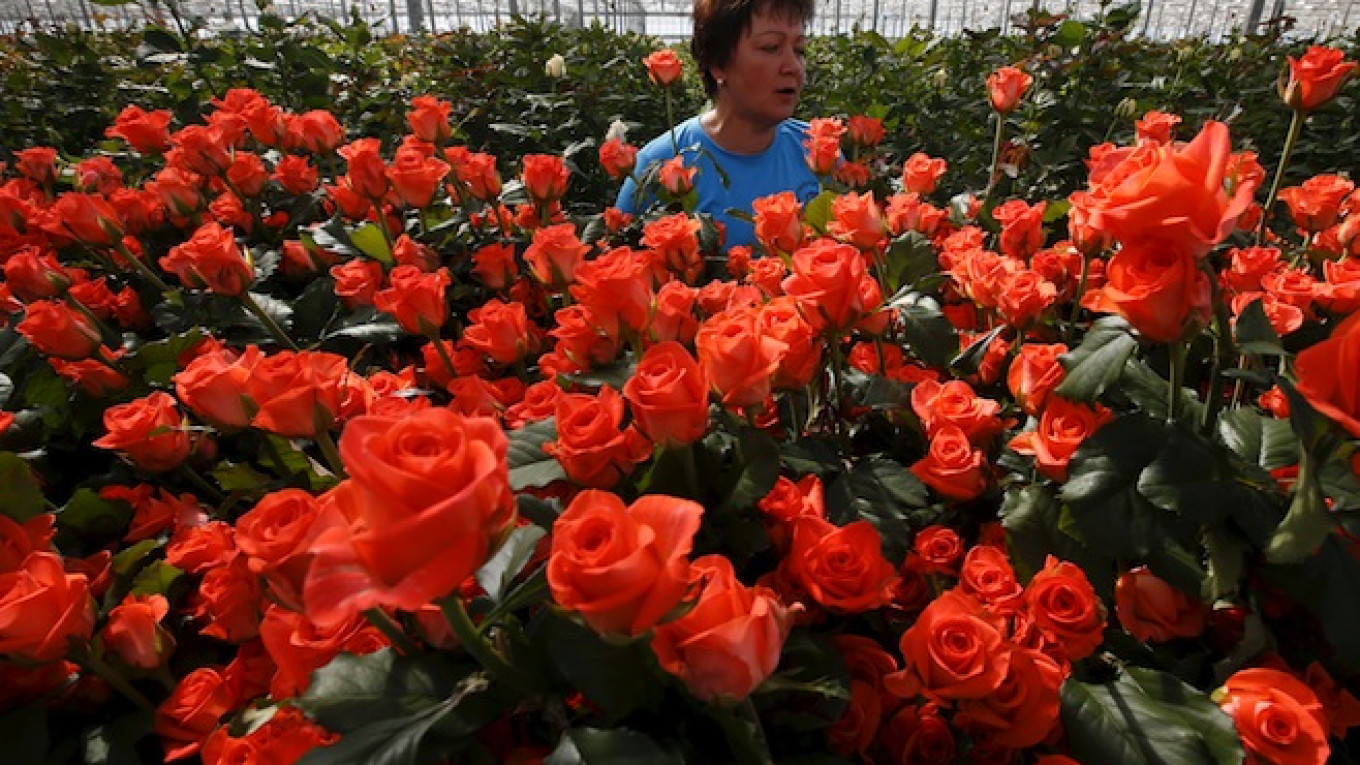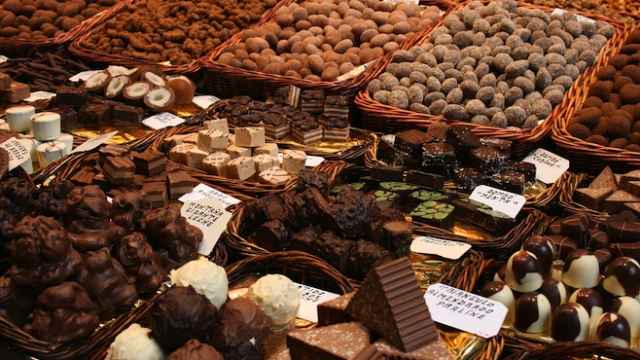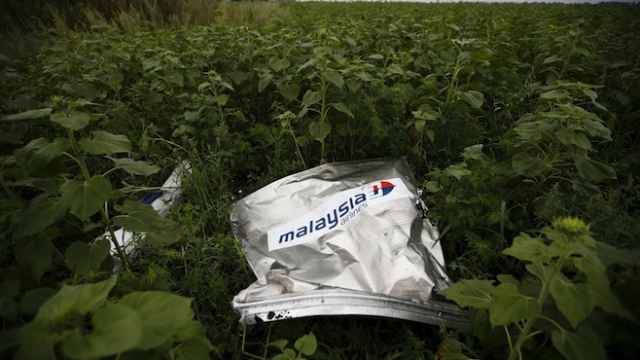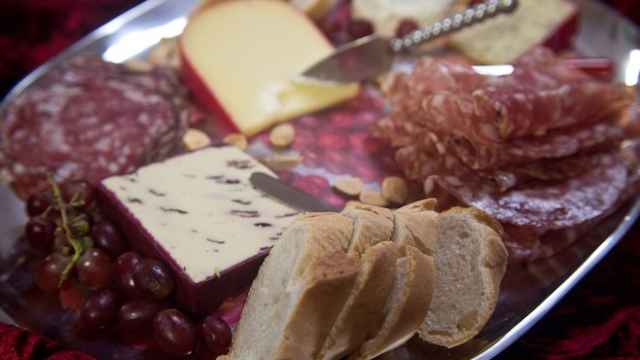A week after angering many in Russia by burning illegally imported Western food, authorities have started feeding Dutch flowers to the flames.
Officials say blooms from the Netherlands, which supplies much of Russia's $2.5 billion flower market, pose safety risks because they may be infected.
Critics say the "flower war" marks a new low in relations with the West and is Moscow's retaliation for a Dutch investigation into the downing of a Malaysian airliner over rebel-held east Ukraine in July last year.
Whatever the reason, ordinary Russians, already struggling with unemployment and inflation, can expect higher flower prices in the next few weeks when demand soars as children returning to school traditionally give flowers to their teachers.
"These are freshly cut flowers from the Netherlands infected with western Californian flower thrips," Russian agricultural watchdog Rosselkhoznadzor's chief sanitary inspector, Yekaterina Slakova, explained as television showed workers burning boxes filled with roses.
Authorities are now considering a ban on flowers from the Netherlands, which sends up to 5 percent of its flower sales to Russia.
"We just have to check every shipment of the flowers ourselves," said the Russian agricultural watchdog's spokesman, Alexei Alexeyenko.
Relations between Russia and the Netherlands collapsed following the downing of Malaysia Airlines flight MH17. Dutch investigators blame Moscow-backed separatists for shooting the airliner down with a Russian-made missile.
Russia denies involvement and blames Ukraine for the tragedy, which killed all 298 people on board. Most of the dead were Dutch.
Last month, Russia vetoed a resolution co-sponsored by the Netherlands to set up a UN-backed tribunal to prosecute the culprits.
"The Russians are searching for any reason not to let our flowers in. We know this is politically motivated," said a spokesperson for a Dutch flower firm, who asked not to be named.
"No flowers will be sent to Russia until the situation changes. Our red line is that the flowers are inspected on Dutch soil rather than in Russia," the person added.
Following the downing of the plane, the West imposed sanctions on Russia. Moscow retaliated by imposing a ban on most Western food imports, which backfired by spurring inflation.
Last week, Russian television showed quantities of illegally imported European cheese being bulldozed while workers threw boxes of European bacon into an incinerator.
Russia insists the issue with Dutch flowers is that they contain bugs that the European Union does not recognize as dangerous.
"Cut flowers infected with these organisms pose a serious threat …," agricultural supervisory body Rosselkhoznadzor said.
Robert Roodenburg of the Association of Wholesale Floricultural Products (VGB), who negotiates on behalf of Dutch producers, said Russia was heavily dependent on Dutch imports.
"As prices spike, we expect the Russians to initiate a solution to the problem," he said. "At the moment, we don't have the means to exterminate all the organisms that are unwanted by the Russians. We want to use biological, not toxic means to eliminate these organisms and developing that technology will take time."
VGB says Dutch flower exports to Russia were worth 107 million euros ($119 million) in the first half of 2015 but other estimates put the figure higher due to black market trades.
Russia mostly imports roses, chrysanthemums and tulips with foreign supplies accounting for more than 80 percent of overall sales, one-third of which come from the Netherlands.
Analysts think prices could jump by over 50 percent if an import ban is imposed, although Russian growers and exporters in Kenya, Ecuador, Colombia and Israel could benefit.
A Message from The Moscow Times:
Dear readers,
We are facing unprecedented challenges. Russia's Prosecutor General's Office has designated The Moscow Times as an "undesirable" organization, criminalizing our work and putting our staff at risk of prosecution. This follows our earlier unjust labeling as a "foreign agent."
These actions are direct attempts to silence independent journalism in Russia. The authorities claim our work "discredits the decisions of the Russian leadership." We see things differently: we strive to provide accurate, unbiased reporting on Russia.
We, the journalists of The Moscow Times, refuse to be silenced. But to continue our work, we need your help.
Your support, no matter how small, makes a world of difference. If you can, please support us monthly starting from just $2. It's quick to set up, and every contribution makes a significant impact.
By supporting The Moscow Times, you're defending open, independent journalism in the face of repression. Thank you for standing with us.
Remind me later.






